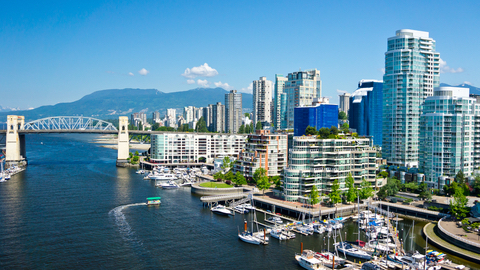
The City Council of Vancouver, BC has approved a five-year Climate Emergency Action Plan (CEAP) which maps out a course towards reducing carbon emissions 50% by the year 2030.
The plan features four main initiatives expected to significantly impact the reduction of carbon pollution from buildings and transportation – which are designated as the city’s largest problem sources. Current studies have shown that 54% of the city’s carbon emissions come from burning natural gas used to heat space and water in buildings, and 39% come from burning gasoline and diesel in vehicles.
These initiatives are:
- Zero emissions buildings;
- A Neighborhood Energy Strategy;
- A Transportation 2040 Plan; and,
- Electric vehicles
The city has estimated that it will need to invest around CAN$500 million (~US$383 million) over the next five years to implement the plan. The funding is expected to come from the existing capital plan, new fees and charges from climate emergency actions, potential increase in investment in climate emergency actions in the next capital plan, as well as savings from using more cost-effective approaches. Net savings are forecast at almost CAN$1 billion for residents and businesses.
Gil Kelley, General Manager of Planning, Urban Design and Sustainability, City of Vancouver, said: “The Climate Emergency Action Plan is an early action in Vancouver Plan, and its approval signals a clear commitment to align Vancouver with climate science by scaling-up efforts to limit warming to 1.5°C. The actions identified are ambitious and necessary. Through them, we will improve the air we breathe, make our neighborhoods more vibrant, reduce energy waste and switch to renewable energy sources, use low carbon construction materials in our buildings, and boost the green economy, among other priorities.”